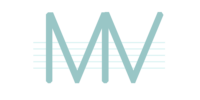Programme April 2018
(for detailed description, see below)
Tickets are available in the ticketshop!

Download Programme Masterclass-weekend
Detailed description of the programme:
Introduction for new participants – The Kodály basics of solfège
Before the start of the masterclass weekend an introduction lesson will be offered to get to know the basics of the Kodály approach in solfège. No prior knowledge is needed. Basic principles of relative solmisation and the use of rhythm syllables will be explained. Open for everyone, but especially useful for people new to the course.
Teacher: Tim Tomassen
Time: Saturday 14 April 9.00-10.00
Room: Studio 1
Opening - Singing
What could be a better way to start and finish these intensive days than by singing?!
Teacher: Daniel Salbert, Royal Conservatoire The Hague
Time: Saturday 14 April 10.00-10.30, 16.30-17.00; Sunday 15 April 10.00-10.30, 16.30-17.00
Room: Schönbergzaal
Classroom music teaching and methodology I – Early Years
Kodály inspired music teaching for Early Years: pre-school and lower primary (Dutch groups 0 - 4)
Lucinda Geoghegan will share her many years of experience of teaching in primary schools and choirs for young children. Steps in methodology will be explained with practical examples and activities.
Teachers: Lucinda Geoghegan, National Youth Choir of Scotland
Time: Saturday 14 April 10.30-12.30
Room: Schönbergzaal
Classroom music teaching and methodology II – Older Beginners
Kodály inspired music teaching for Early Years: upper primary (Dutch groups 5 - 8)
Older beginners in music can be taught according to the same Kodály principles, but an adjustment will need to be made to lesson planning and repertoire. In this workshop Lucinda will give practical examples and an outline of the approach to start teaching music to older beginners.
Teachers: Lucinda Geoghegan, National Youth Choir of Scotland
Time: Sunday 15 April 10.30-12.30
Room: Schönbergzaal
Songs and Games
Songs and games or movements to music are an import part of the Kodály inspired way of teaching music. How do these activities relate to repertoire and how can musically interesting and challenging games be designed?
This workshop will be offered twice.
Teachers: Lucinda Geoghegan, National Youth Choir of Scotland
Time: Saturday 14 April 14.30-16.30 and Sunday 15 April 14.30-16.30
Room: Schönbergzaal
Kodály Tools
Practical workshop about the teaching tools often used in Kodály music teaching: parachutes, heart beats, stepping spots, modulator, movable do disc etc.
This workshop will be offered twice.
Teacher: Daniel Salbert and Tim Tomassen
Time: Saturday 14 April 14.30-16.30 and Sunday 15 April 10.30-12.30
Room: Studio 1
Kodály in Jazz Education
A Jazz workshop where the Kodály approach will be connected to jazz repertoire through singing and playing. Participants are invited to bring their instrument, but this is not necessary to follow the workshop.
This workshop will be offered twice.
Teacher: Erik Albjerg, Royal Conservatoire The Hague
Time: Saturday 14 April 14.30-16.30 and Sunday 15 April 10.30-12.30
Room: Studio 4 (Saturday), Studio 3 (Sunday)
Introduction to Kodály’s Philosophy and Works
From Zoltán Kodály’s writings we can learn about his thoughts on music teaching and the understanding of musical learning. In this workshop an introduction will be given to his writings in texts (articles) as well as in notes (pedagogical compositions in Choral Method).
This workshop will be offered twice.
Teacher: Ewan Gibson and Suzanne Konings, Royal Conservatoire The Hague
Time: Saturday 14 April 10.30-12.30 and Sunday 15 April 14.30-16.30
Room: Studio 1
Introduction to John Curwen’s Music Teaching Method
Many aspects of John Curwen’s music teaching method from the 19th century have found a place in the Kodály way of teaching music. In this workshop participants will use the Curwen hand signs, relative solfa and rhythm language in combination with learning how to read Curwen’s music notation system by singing exercises and choral music.
This workshop will be offered twice.
Teacher: Patricia Wisse
Time: Saturday 14 April 10.30-12.30 and Sunday 15 April 14.30-16.30
Room: Studio 4 (Saturday), Studio 3 (Sunday)
